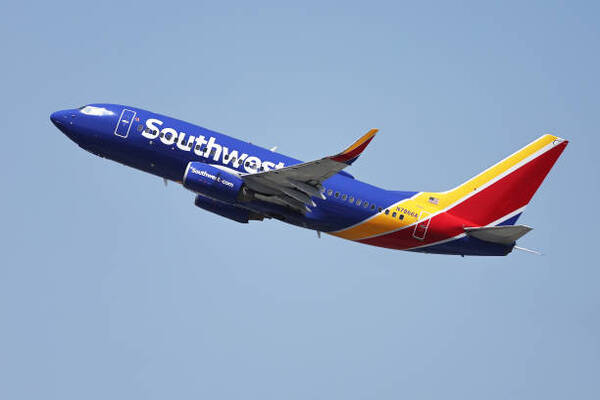Thursday, May 29, 2025
Southwest Airlines starts charging baggage fees this week, introducing new costs for checked bags that reshape travel expenses for millions of passengers.
Southwest Airlines has taken a significant step by joining other major carriers like Delta and American in charging fees for checked baggage. This shift marks a notable change in the airline’s longstanding policy of offering free checked bags, a benefit that had set it apart from many of its competitors.
Starting this Wednesday, passengers flying with Southwest will be required to pay for checked baggage. The airline has announced that the fee for the first checked bag will be thirty-five dollars, while the second checked bag will carry a fee of forty-five dollars. This update affects all travelers except for certain loyal customers and credit card holders, who will continue to enjoy some complimentary baggage benefits.
Earlier in the year, Southwest communicated its decision to discontinue the free checked bag policy as part of a broader strategy aimed at increasing revenue and rewarding its most dedicated customers. This adjustment aligns Southwest’s baggage policies more closely with those of other leading airlines, including Delta, United, and American, all of which have been charging for checked bags for many years. The move reflects the evolving dynamics of the airline industry, where ancillary fees have become an important revenue stream amid fluctuating ticket prices and operational costs.
The Department of Transportation reported that Southwest generated approximately eighty-three million dollars in baggage fees last year from passengers who checked three or more bags. This substantial figure highlights the financial impact of baggage fees within the airline industry. Despite this change, Southwest is maintaining perks for its most loyal customers. For instance, members of the Rapid Rewards A-List who book Business Select fares will still be entitled to two free checked bags. Additionally, A-List members and other select customers will continue to receive one complimentary checked bag as part of their membership benefits.
Customers can reach A-List status by completing twenty qualifying flights or collecting thirty-five thousand qualifying points within a year. This elite tier provides frequent travelers with exclusive benefits, including the waiver of baggage fees. In addition, those who possess the Rapid Rewards Credit Card are granted one free checked bag. This card, designed specifically for loyal Southwest flyers, carries an annual fee starting at sixty-nine dollars and offers various perks, such as complimentary baggage allowance and more.
Last year, Southwest also announced plans to revamp its boarding and seating process by introducing assigned seating. This change includes the addition of premium seats with extra legroom, a feature that passengers have long desired. Those purchasing these premium seats will gain priority boarding privileges, allowing them to board the aircraft before general boarding begins. This new seating arrangement aims to enhance the overall flying experience, especially for customers who value extra comfort and convenience.
Looking ahead, Southwest plans to introduce four new fare bundles during the third quarter of 2025. These bundles—Choice Extra, Choice Preferred, Choice, and Basic—will offer passengers a range of options to suit different budgets and preferences. The Choice Extra bundle, being the most expensive, will provide several premium benefits. These include early boarding, two free checked bags, access to more spacious seats during booking, and complimentary internet access throughout the flight.
Passengers who select any of the other three fare bundles—Choice Preferred, Choice, or Basic—will need to pay separately for checked baggage and internet services. This tiered fare structure reflects a growing trend across the airline industry, where carriers offer customizable options to better cater to varying traveler needs. By allowing customers to choose the level of service and amenities they want, airlines aim to maximize revenue while providing more tailored travel experiences.
Southwest’s decision to introduce baggage fees and restructure its fare options represents a significant shift from its traditional approach. Known for its customer-friendly policies, especially the no-fee checked bag rule, Southwest’s new strategy underscores the competitive pressures and financial realities airlines face today. While some loyal travelers may be disappointed by the changes, the airline continues to offer perks for its frequent flyers and credit card members, maintaining a balance between revenue generation and customer satisfaction.
In summary, Southwest’s baggage fee implementation, new fare bundles, and assigned seating policy demonstrate its adaptation to current market trends and the evolving demands of airline passengers. As travelers prepare for these changes starting this Wednesday and later in 2025, they can expect a mix of added fees but also enhanced options and perks, particularly for those who fly frequently or choose premium services. This evolution highlights how Southwest, while adjusting its business model, still aims to deliver value and maintain its loyal customer base in a highly competitive industry.
